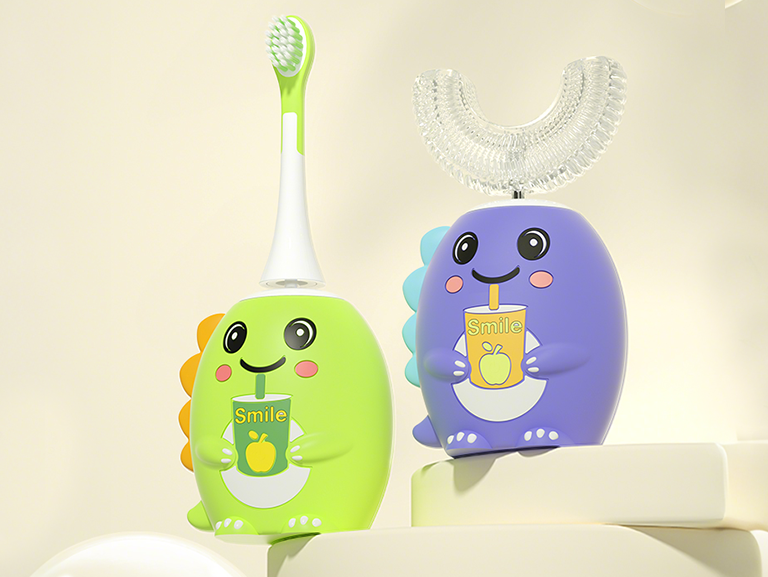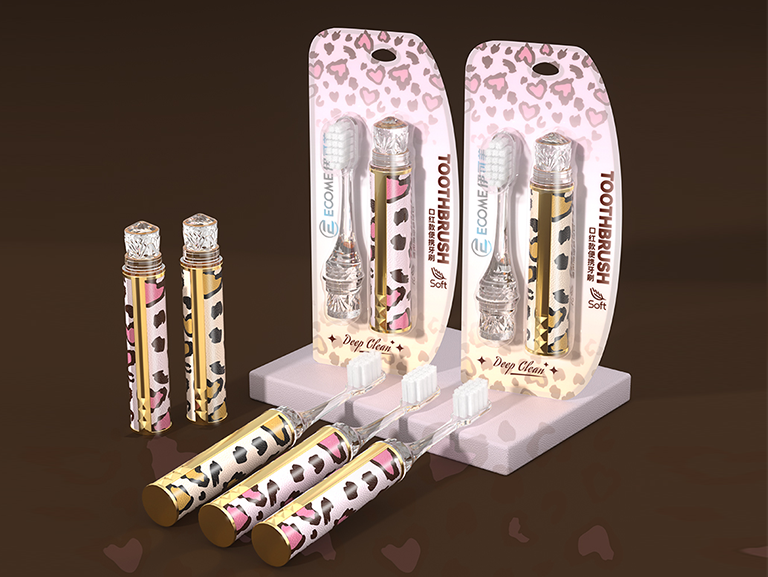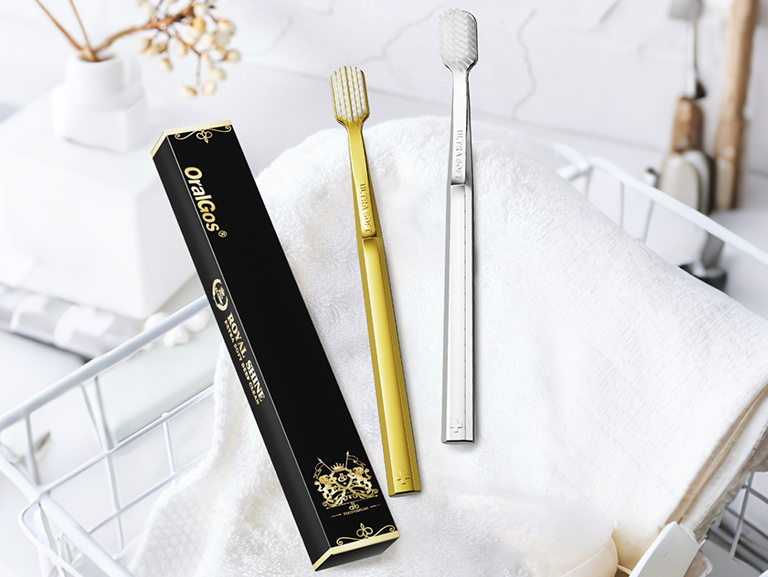Good oral hygiene is essential for everyone, and instilling healthy dental habits in children from a young age is crucial. One effective way to encourage kids to brush their teeth regularly is by using an kid electric toothbrush. These devices can make brushing fun and more efficient, but not all electric toothbrushes are suitable for children. In this comprehensive guide, we will explore the factors to consider when choosing the right electric toothbrush for kids, as well as the top options available in the market.
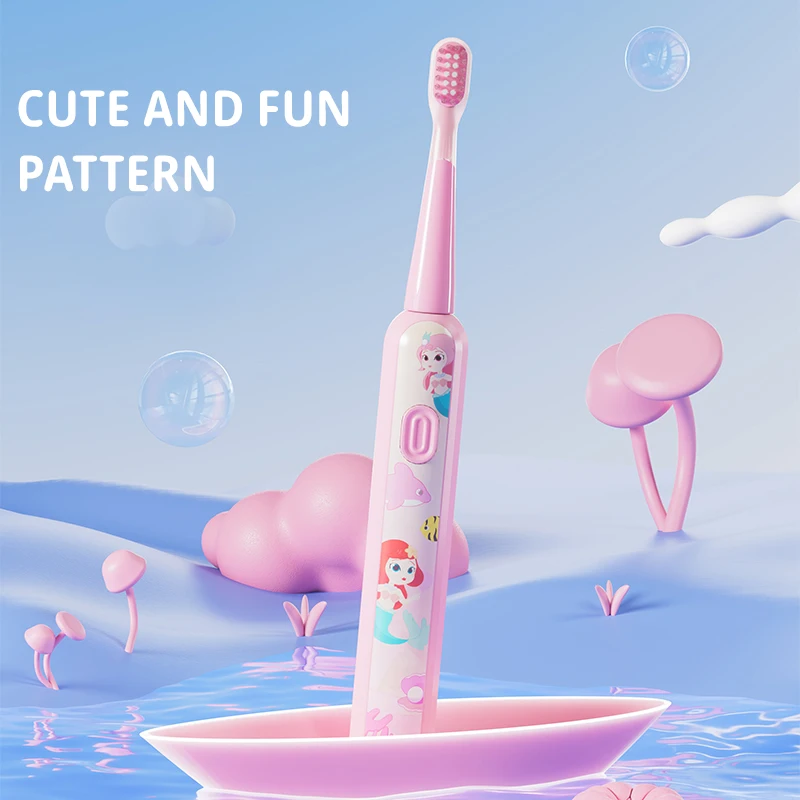
The Importance of Oral Health in Children
Before delving into the world of electric toothbrushes for kids, it’s important to understand the significance of oral health in children. Dental hygiene plays a vital role in a child’s overall well-being, and maintaining healthy teeth and gums is key to preventing various dental issues, such as cavities, gum disease, and tooth decay.
Proper brushing techniques are essential in ensuring effective cleaning and preventing these problems. An electric toothbrush can be a valuable tool in this regard, as it provides a more consistent and thorough brushing experience compared to manual toothbrushes, especially for children who may not have the dexterity or patience for proper manual brushing.
Advantages of Kid Electric Toothbrush
Electric toothbrushes offer several advantages for children, making them an excellent choice for young brushers. Here are some of the benefits of using a kid electric toothbrush:
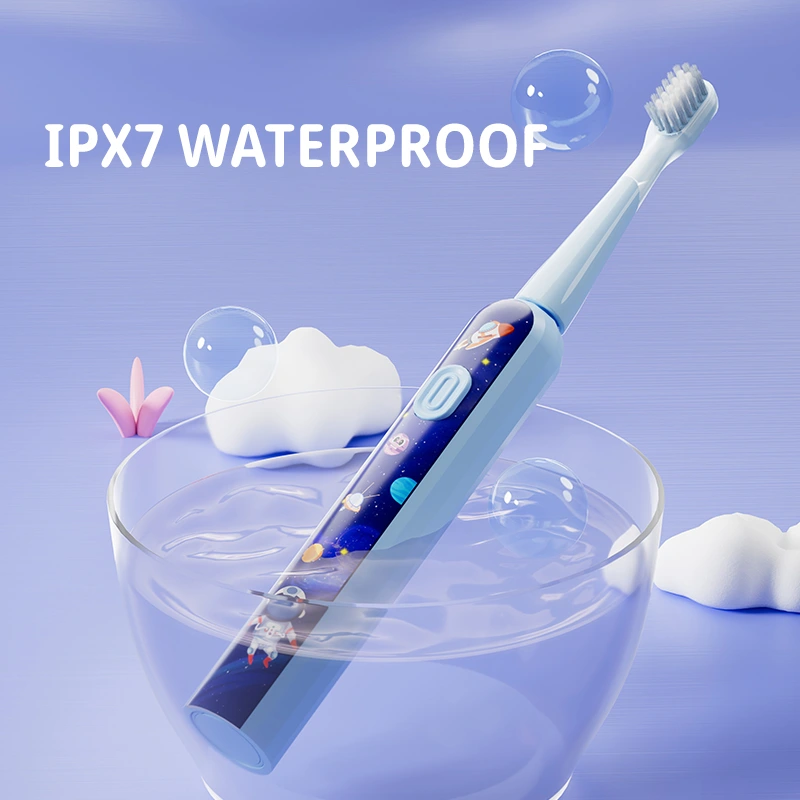
1. Efficient Cleaning: Kid Electric toothbrush designed to clean teeth more effectively than manual brushes. The rotating or oscillating bristle heads can remove plaque and food particles more efficiently, reducing the risk of dental issues.
2. Built-In Timers: Many electric toothbrushes come with built-in timers that help children brush for the recommended two minutes. This feature encourages proper brushing duration, ensuring that all areas of the mouth are thoroughly cleaned.
3. Fun and Engaging: Most kids find electric toothbrushes more fun and engaging than manual ones. Vibrating or spinning brush heads can turn brushing time into an enjoyable daily routine.
4. Ease of Use: Kid Electric toothbrush is generally easier for children to use, particularly those with small hands or limited motor skills. This can make brushing a less frustrating experience for both kids and parents.
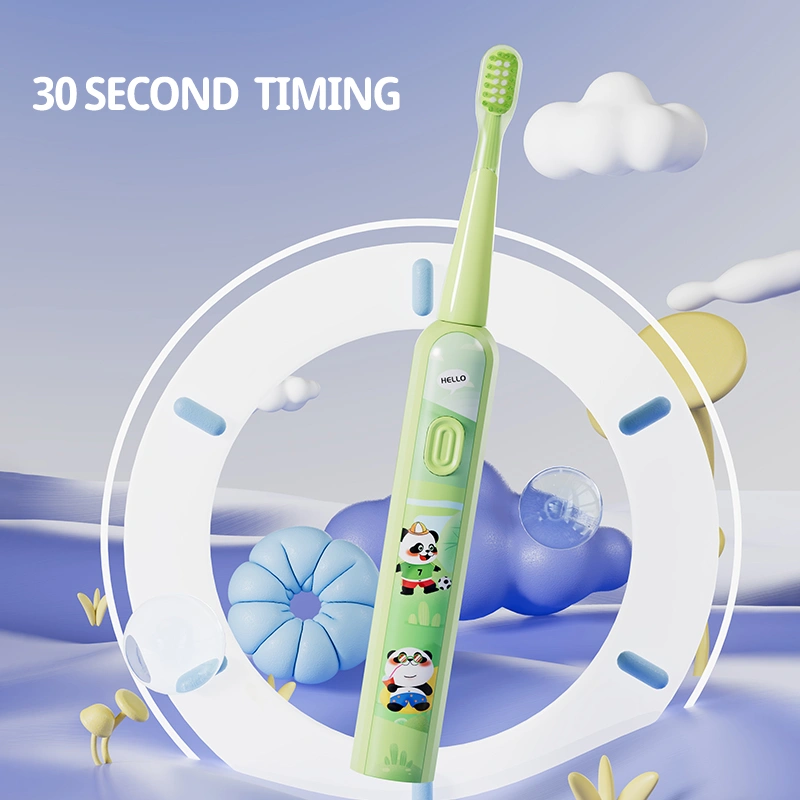
5. Improved Oral Health: With their ability to provide a more thorough cleaning, electric toothbrushes can contribute to improved oral health in children. This can result in fewer dental visits and less discomfort for your child.
Factors to Consider When Choosing a Kid Electric Toothbrush
1. Age-Appropriate Features: Younger children may benefit from simpler, more user-friendly toothbrushes, while older kids can handle more advanced features. Look for toothbrushes designed for your child’s age group.
2. Brush Head Size: The size of the brush head should match the size of your child’s mouth. A brush head that is too large can be uncomfortable and less effective in cleaning smaller teeth and hard-to-reach areas.
3. Bristle Softness: Children’s teeth and gums are more delicate than those of adults. Ensure that the toothbrush you choose has soft bristles to prevent any potential harm or discomfort.
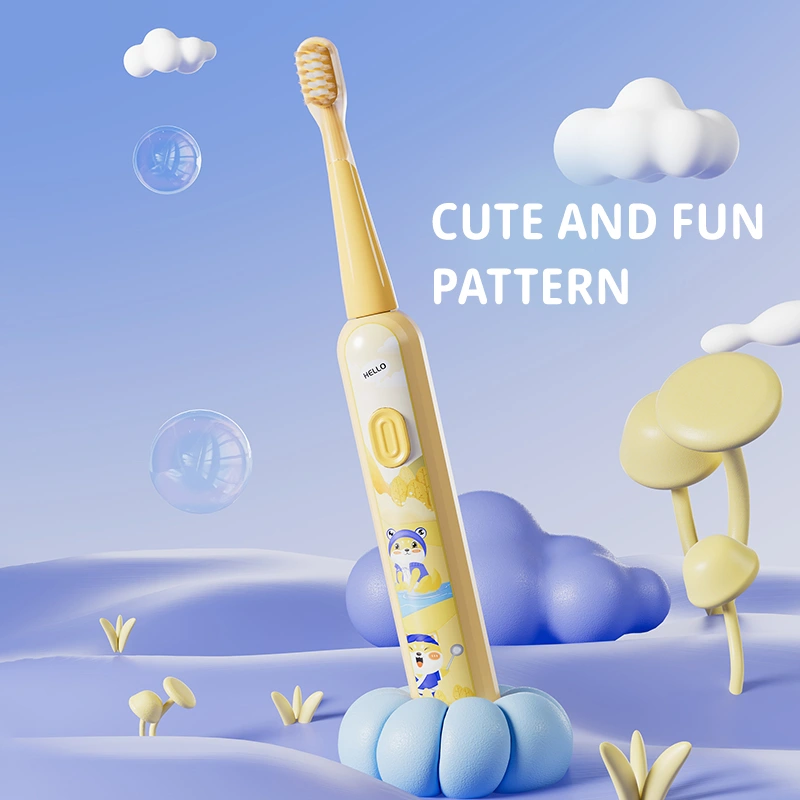
4. Battery Life: Check the battery life of the electric toothbrush. A longer battery life means fewer interruptions in the brushing routine, and you won’t have to charge the toothbrush as frequently.
5. Design and Ergonomics: The design of the toothbrush should be appealing to your child. Some electric toothbrushes come with colorful and character-themed handles, which can make brushing more appealing for kids.
6. Water Resistance: Kids can be messy when they brush, so it’s essential to choose a toothbrush that is water-resistant. This ensures that accidental splashes or rinsing won’t damage the toothbrush.
7. Replacement Brush Heads: Check the availability and cost of replacement brush heads for the toothbrush. Regularly replacing the brush head is crucial to maintain optimal cleaning performance.
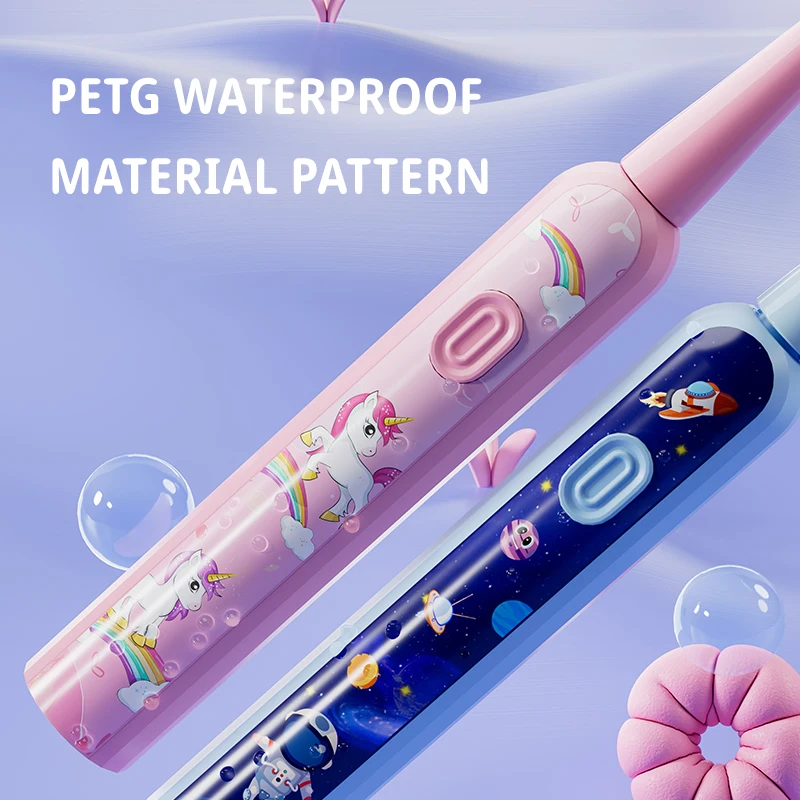
8. Safety Features: Some electric toothbrushes come with safety features such as pressure sensors to prevent excessive pressure on the teeth and gums, which can cause damage over time.
9. Timer: Look for a toothbrush with a timer to ensure your child brushes for the recommended two minutes.
10. Sound and Vibration: The noise level of the toothbrush might be a concern, especially if you have a child with sensory sensitivities. Consider models with quieter operation if noise is an issue in your household.
11. Cost: Electric toothbrushes vary in price, and it’s important to consider your budget when choosing one for your child.
NEWCLAYS Top Electric Toothbrushes for Kids
The NEWCLAYS Kids Electric Toothbrush is designed for children aged three and older. It features fun and colorful designs with popular characters like Unicorn, Astronaut, Mermaid, Dinosaur, Panda and Dog. The toothbrush has soft bristles, a built-in timer, and a pressure sensor to protect your child’s gums. It also comes with a mobile app that encourages kids to brush for the recommended time by making the brushing experience interactive and enjoyable.
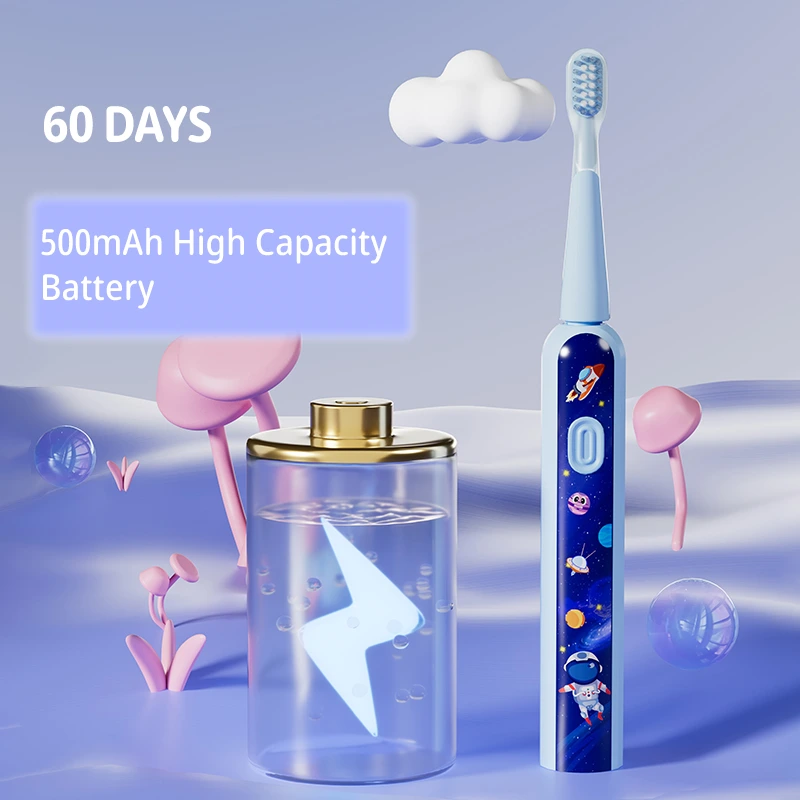
The NEWCLAYS Sonicare for Kids is suitable for children aged three and older. It features a Kid Timer that gradually increases brushing time to two minutes, helping kids establish a brushing routine. The toothbrush comes with 3 brush heads, making it an excellent choice.
Tips for Teaching Kids to Use Electric Toothbrushes
Once you’ve chosen the right electric toothbrush for your child, it’s essential to teach them how to use it correctly. Here are some tips to help your child make the most of their new toothbrush:
1. Supervise and Assist: Until your child becomes proficient at brushing their teeth, it’s crucial to supervise and assist them. This ensures they don’t miss any spots and that they use the toothbrush correctly.
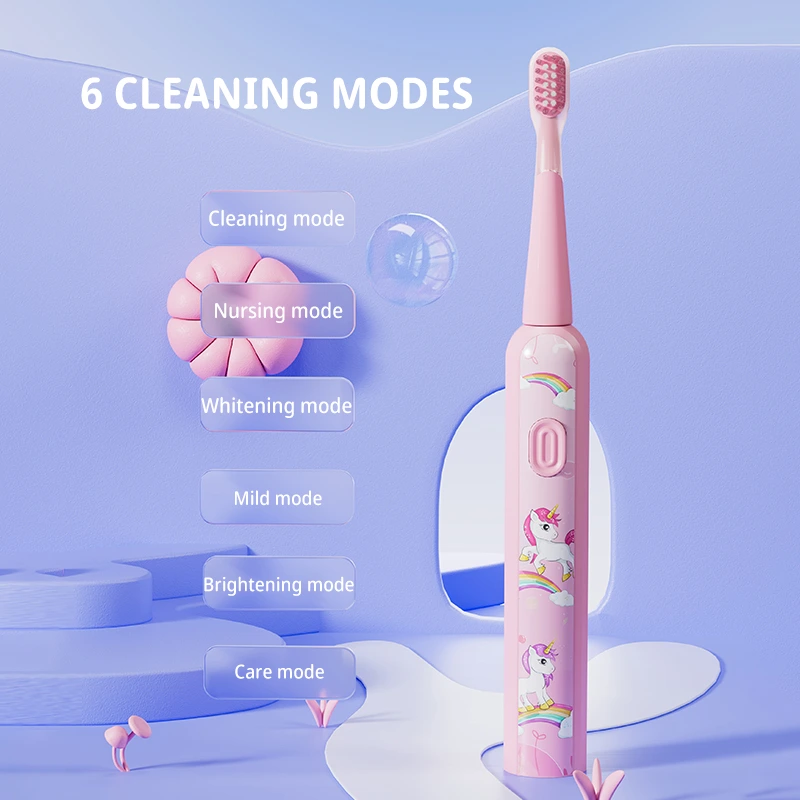
2. Use a Pea-Sized Amount of Toothpaste: Teach your child to use only a small amount of toothpaste, about the size of a pea, to prevent excessive swallowing.
3. Proper Brushing Technique: Show your child the proper brushing technique, which includes brushing all surfaces of their teeth and gums. Make sure they brush for a full two minutes.
4. Rinse Thoroughly: Encourage your child to rinse their mouth and toothbrush thoroughly after brushing.
5. Regularly Replace Brush Heads: Keep track of when it’s time to replace the brush head and do so as recommended by the manufacturer.
6. Make It Fun: Electric toothbrushes are meant to be fun. Let your child choose their toothbrush, play their favorite music during brushing time, or use a timer with an enjoyable sound or jingle to make it a positive experience.
7. Set a Routine: Establish a consistent brushing routine by brushing together as a family. This not only ensures everyone brushes regularly but also sets a positive example for your child.
8. Reward System: Consider implementing a reward system to motivate your child. You can use stickers, a chart, or small incentives for consistent and effective brushing.
Common Concerns About Electric Toothbrushes for Kids
As parents, it’s natural to have concerns about introducing electric toothbrushes to your children. Here are some common concerns and their solutions:
1. Cost: Electric toothbrushes can be more expensive than manual ones. However, there are affordable options available, and consider it an investment in your child’s oral health.
2. Noise: Some electric toothbrushes can be loud, which may startle young children. Look for models that operate quietly if this is a concern.
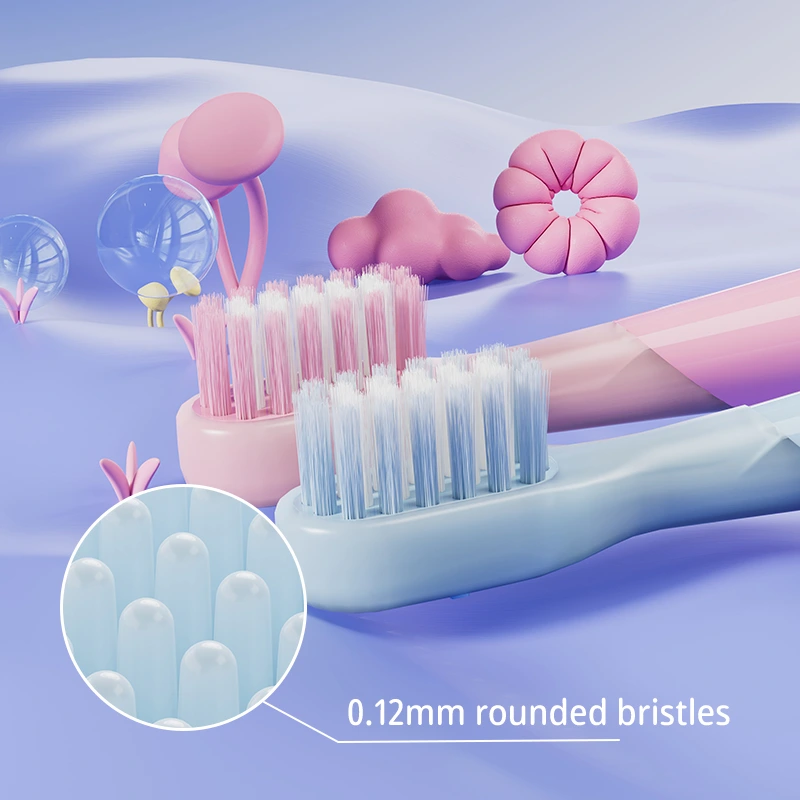
3. Bacteria and Cleaning: Electric toothbrushes can harbor bacteria if not properly cleaned. Make sure to rinse and clean the brush head thoroughly after each use and replace it as recommended by the manufacturer.
4. Charging: Remember to charge the toothbrush as needed to avoid interruptions in your child’s brushing routine.
5. Reluctance to Change: Some children may be resistant to switching from a manual to an electric toothbrush. To overcome this, let them choose their own electric toothbrush or make the transition gradually.
Conclusion
Choosing the right electric toothbrush for your child is a crucial step in promoting good oral hygiene from a young age. Electric toothbrushes offer several advantages, including efficient cleaning, fun and engaging brushing experiences, and built-in features to encourage good dental habits.
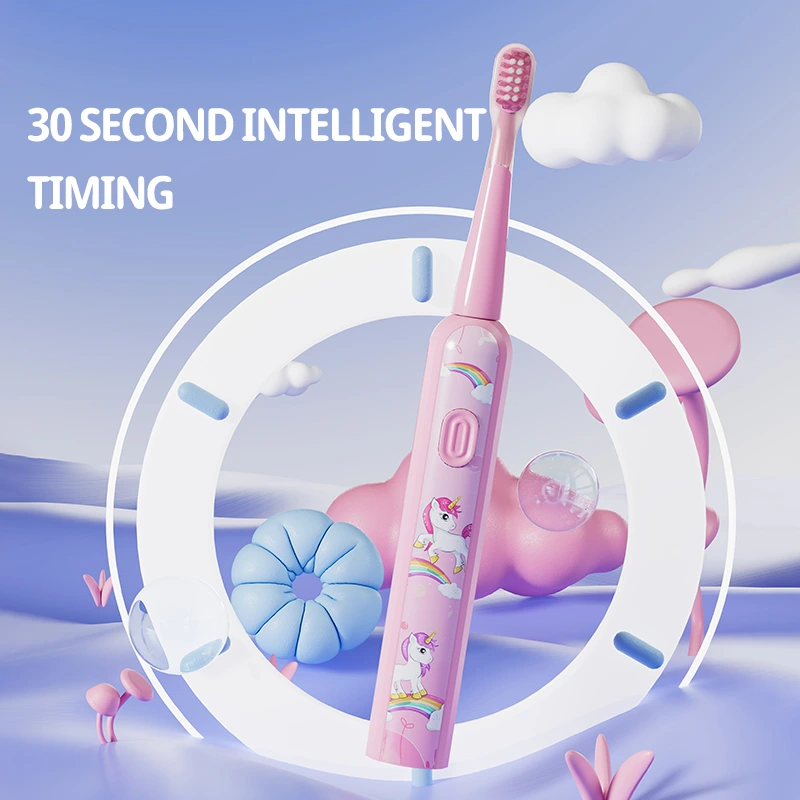
When selecting an electric toothbrush for your child, consider factors such as age-appropriate features, brush head size, bristle softness, battery life, design and ergonomics, water resistance, safety features, timers, and cost. By carefully evaluating these factors and choosing an electric toothbrush that suits your child’s needs and preferences, you can help ensure their long-term oral health.
Remember that teaching your child to use an electric toothbrush correctly is equally important. Supervise and assist them until they become proficient at brushing, use a pea-sized amount of toothpaste, teach proper brushing techniques, and establish a fun and consistent brushing routine.
With the right electric toothbrush and good brushing habits, you can set your child on a path to a lifetime of healthy smiles and excellent oral health. So, go ahead and make the best choice for your child’s dental well-being today!



